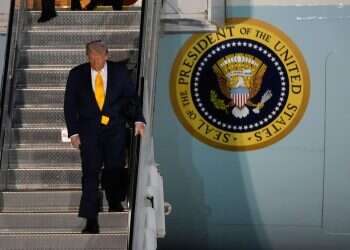"Go and gather together all the Jews...," are the opening words of Esther's instructions to Mordechai as soon as she learns of the sinister decree of King Ahasuerus, "to destroy, massacre, and exterminate all the Jews, young and old, children, and women, on a single day."
Follow Israel Hayom on Facebook, Twitter, and Instagram
Rather than interpreting this as a one-time directive relevant to that specific period in history, Jewish sages over the years have preferred to understand this as a message for all generations, intended to repair the fundamental defect that Haman identified within the Jewish people, whom he describes as "a scattered and dispersed people." The commandment of mishloach manot (sending gifts to one another) which has become a widespread and popular custom on the festival of Purim, is intended to increase love and friendship among the Jewish people, to this very end.
Today too, we here in Israel are facing fateful predicaments, mainly in relation to the Iranian regime that is proceeding full steam ahead towards attaining a nuclear weapon, as well as with regards to its proxies who are primed for action and deployed along our borders. And the people are dispersed and polarized.
The internal discord is viewed by our enemies as an unprecedented schism in the history of the state. The fact that the dispute has made its way into the IDF and the defense establishment only serves to further encourage them, sparking their imagination and fueling their hopes. In Tehran, they are already beginning to jump for joy, and those who adhere to Nasrallah's perception of Israel being as weak as a "spider's web", who see Israeli society as being torn apart by strife, overindulged and tired of war, are now identifying signs to support their inner hopes.
In articles published on the Lebanese channel Al Mayadeen, such as that written by Muzar Shahabil on March 2, it is stated that "It is true that Israel enjoys military power and considerable economic strength, but the importance and value of these pale into insignificance in view of the weaknesses and the escalating internal conflict and polarization."
The severity of the current crisis results from the accumulated impact of a number of factors: firstly, the timing. It has hit Israeli society precisely at the time that decisions will have to be made on the Iranian nuclear issue with what Israel believes to involve existential ramifications. We cannot overemphasize the importance of the need to face up to this threat as a unified and consolidated front. The same is true for our approach to the US and the international community – in relation to whom too, tough decisions will need to be made.
Secondly, the scope of the phenomenon. The considerable amount of attention and energy required to deal with this crisis, both in terms of Israeli society and the state itself. This will clearly come at the expense of the ability to focus on other issues of momentous importance.
Thirdly, its impact on the defense and security establishments. Even if we may assume that the disputes have not actually pervaded the regular, operational units, it does have an effect on them, it is something that preoccupies both military commanders and the directors of the various security organizations, as well as having an impact on their image. All this is without taking into account the ongoing erosion in the status of the state entities that are supposed to embody our national unity and cohesion.
These special circumstances should compel Israel's leadership, coalition and opposition alike, opinion makers and community leaders, to take requisite action in order to calm things down, to change the dynamics of the public discourse, and to work towards holding a serious dialogue striving towards as broad a consensus as possible.
There are times when the common challenges that face us as a nation must take precedence over all other disputes. It is at moments like these that anybody in a position of potential influence should regard the following words from the Book of Esther as being personally addressed to them: "And who knows, perhaps you have attained this royal position for just such a time as this."
Meir Ben Shabbat served as Israel's national security advisor and head of the National Security Council between 2017 and 2021. He is head of the Institute for Zionist Strategy & National Security, in Jerusalem.
Subscribe to Israel Hayom's daily newsletter and never miss our top stories!




